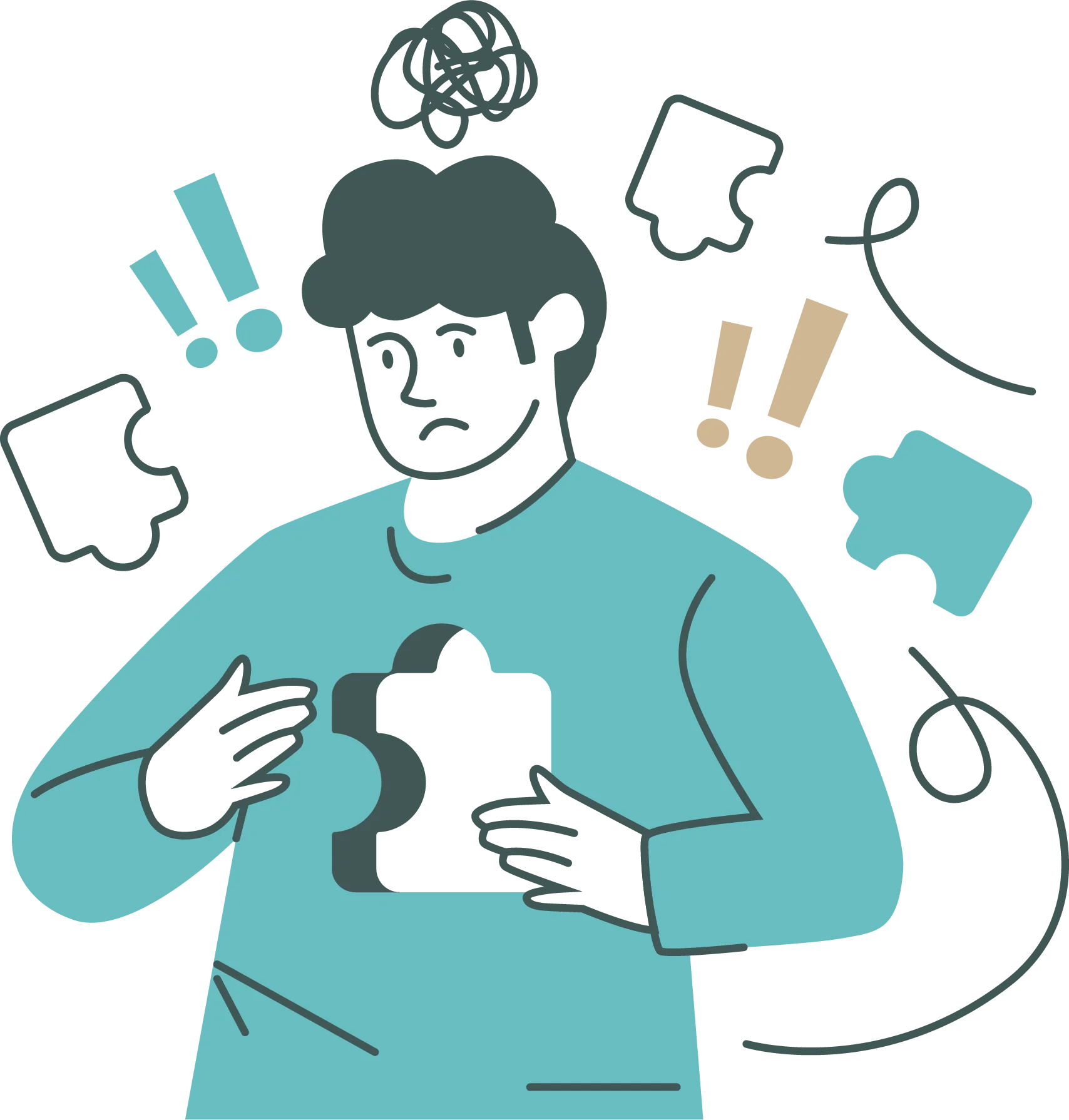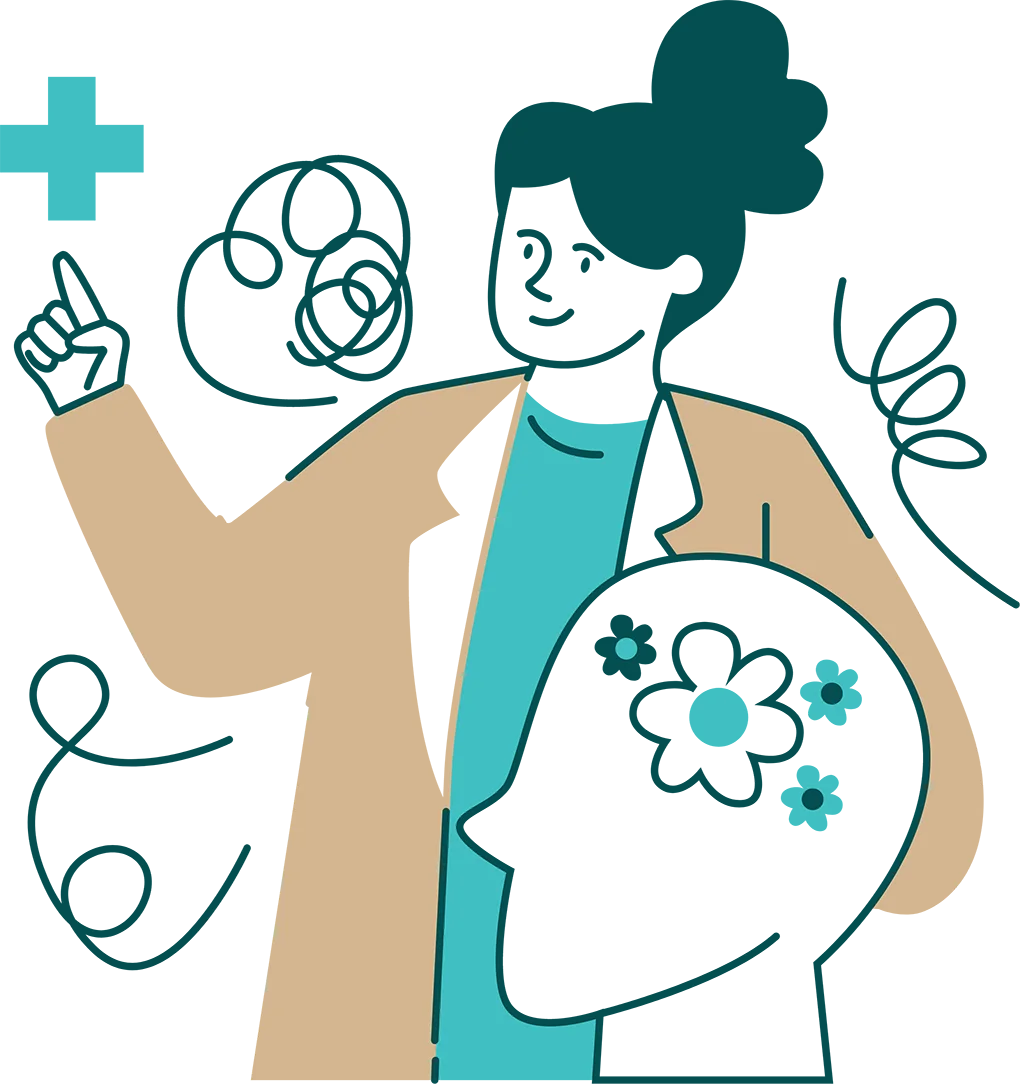Obsessive-Compulsive Disorder (OCD)
At Altitude Mind Clinic, we help people manage distressing OCD symptoms with evidence-based, personalised care.
Our online treatment includes specialist assessment, tailored sessions with psychologists, medication prescribing and monitoring, and lifestyle support.
Care is flexible, effective, and designed around your needs, wherever you are in Australia.

What is Obsessive-Compulsive Disorder?
Obsessive-compulsive disorder (OCD) is a mental health condition characterised by persistent, intrusive thoughts (obsessions) and repetitive behaviours or mental acts (compulsions) performed to reduce distress or prevent feared outcomes. These behaviours often interfere with daily functioning and cause significant distress.
It is important to know that Obsessive-Compulsive Disorder is not about being fussy or “a clean freak.” Thoughts and behaviours associated with OCD are distressing, time-consuming, and often interfere with work, relationships, and quality of life.
Let Us Guide You on your Health Journey
OCD Symptoms
OCD symptoms are separated into obsessions and compulsions.
Obsessions
- Fear of contaminating germs, dirt, or diseases from touching objects or being in certain environments.
- Persistent thoughts that something bad will happen to oneself or loved ones, such as accidents or injuries.
- A need to have things perfectly aligned, balanced, or arranged in a specific way and feeling intense stress when they are not.
- Intrusive thoughts about acting immorally, violating personal values, or offending religious beliefs.
Obsessions are not simply excessive worries about real-life problems; they often feel irrational and disproportionate, yet are extremely distressing to the individual. People with OCD often know their fears do not make sense, but still feel powerless against them.
Compulsions
- Repeated handwashing, showering, or cleaning surfaces to eliminate perceived contamination.
- Ritualistically checking that doors are locked, or appliances are turned off, such as checking the front door multiple times in a row.
- Engaging in specific counting patterns or silently repeating phrases to reduce distress.
- Rearranging items until they feel “just right” or balanced according to personal standards.
- Silently praying, reviewing events, or mentally undoing perceived wrongs to neutralise obsessive fears.
These compulsions are often done in secret, can consume significant time, can interfere with daily life, and often bring only temporary relief, perpetuating a distressing cycle. The cycle of obsession and compulsion can be incredibly draining.
Severity of OCD Symptoms
OCD symptoms can range from mild to severely debilitating. For some, the impact may be occasional or manageable, while for others, OCD symptoms can take up hours of each day and significantly interfere with work, relationships, and wellbeing.
It is important to remember that OCD is not defined by how severe it may look to others—even symptoms that seem minor can cause distress. No matter where you fall on the spectrum, your experience is valid, and support is available.

Causes of OCD
While the exact cause of OCD is unknown, contributing factors may include:
- Genetics: A family history of OCD may increase the risk.
- Brain Structure and Function: Differences in brain function and serotonin regulation may play a role in the development of OCD.
- Environmental Triggers: Trauma, major life transitions, or ongoing stress can trigger or worsen symptoms.
Obsessions vs Being “Obsessed”
In everyday language, people often say they are “obsessed” with a song or show. But in OCD, obsessions are something very different. They are unwanted, intrusive thoughts or fears that cause significant distress and anxiety.
Unlike everyday interests, OCD obsessions are not enjoyable. They can be disturbing, feel out of character, and are often focused on fears of harm, contamination, or doing something “wrong.” These thoughts stick around and are hard to control, even when a person knows they do not make sense.
It is important to recognise the difference between OCD obsessions and being obsessed with something. Casual use of the word “obsessed” can unintentionally downplay the real challenges of living with OCD.
How OCD Affects Daily Life
OCD can significantly impact daily life, often in ways that are not visible to others.
- At work or school, OCD can interfere with focus, productivity, and confidence. Someone might spend extra hours double-checking tasks or avoiding shared spaces due to contamination fears.
- In relationships, OCD can cause misunderstandings or tension, especially when loved ones do not fully grasp the nature of the condition.
- Simple routines, like leaving the house, cooking, or going to bed, can become overwhelming when rituals take up a large amount of time. Many people with OCD feel constantly anxious or “on edge,” which can lead to fatigue, poor sleep, and emotional burnout.
Hiding symptoms out of fear of being judged is common, but it does not have to be this way. OCD is not a personal weakness—it is a treatable mental health condition.

How a Specialist Assessment Can Make a Difference
Effective treatment for OCD often includes a combination of medication and psychological therapies such as Cognitive Behavioural Therapy (CBT) and Exposure and Response Prevention (ERP). These approaches are backed by strong evidence and can significantly reduce symptoms when used appropriately.
At Altitude Mind Clinic, we provide comprehensive specialist assessments and develop personalised treatment plans based on the most effective, evidence-based interventions. We take the time to understand your experiences and recommend a care approach tailored to your individual needs and goals.
With the right plan in place, OCD symptoms can become much more manageable, and you don’t have to navigate it alone.
Why Telehealth Is Ideal for OCD Treatment
Seeking support can be daunting, especially if OCD symptoms involve fears around contamination, being outside the home, or interacting with unfamiliar environments. That is why online treatment for OCD can be a game-changer. With telehealth mental health services, you can:
- Access OCD help from home. No commuting and no waiting rooms.
- Schedule sessions around your life, at a pace that suits you.
- Receive high-quality, private support even if you live in a remote or regional area.
At Altitude Mind Clinic, we are proud to serve communities across Australia, especially those where in-person mental health services are limited or unavailable.

We believe everyone deserves access to compassionate, professional care.